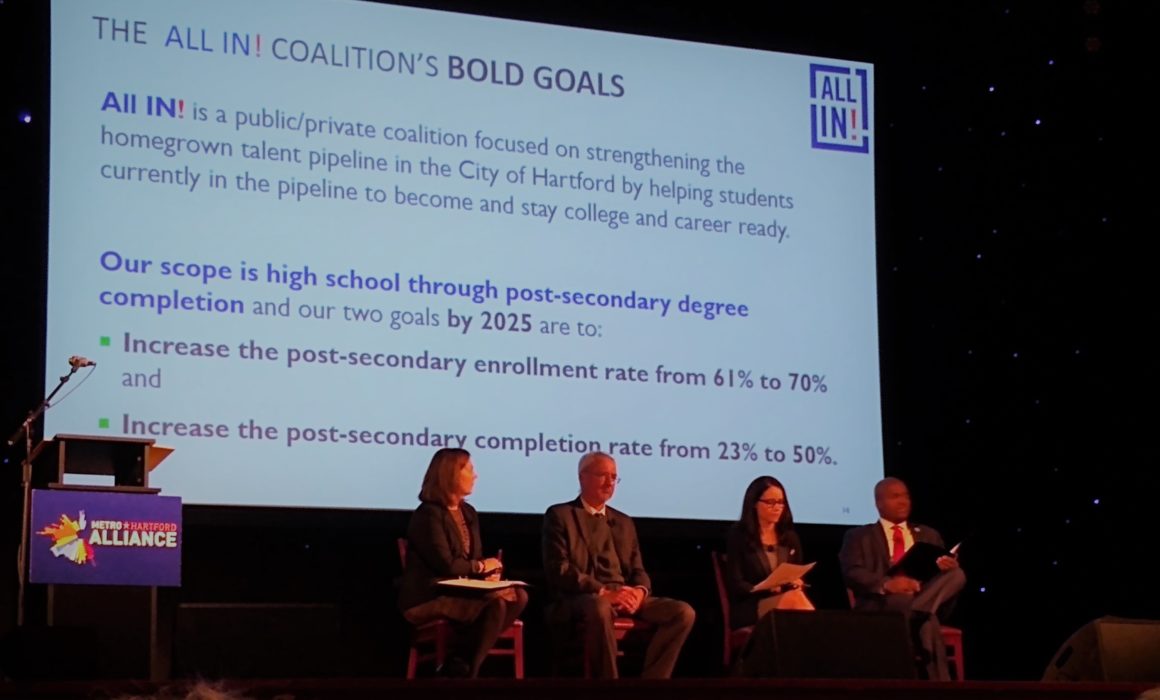Rising Star Breakfast: Building a Local Talent Pipeline
Leaders from the corporate, higher education, philanthropic and nonprofit communities gathered on October 31st to learn how collaborative public-private partnerships in Hartford and other cities are preparing local youth for higher ed and the workforce.
The event featured Fio Partners consulting and managing partner, Anne Yurasek, who has worked with public/private coalitions in the state and has studied collaborative efforts. In Nashville, she noted, high school students attend a career fair with hands-on activities and pre-assessments designed to help them identify career aspirations. In Austin, partners train volunteer classroom coaches and mentors and provide financial aid workshops and text message campaigns to send students deadline reminders.
Hartford, a city on the move with energy and optimism, has formed the ALL IN! Coalition for College and Career Readiness, said Yurasek. ALL IN! brings together leaders committed to breaking down silos to form cross-sector partnerships and work toward bold goals for Hartford Public School students and graduates, she said.
The audience at Infinity Hall in Hartford laughed when she pointed out how risk-averse the Hartford region is. She encouraged leaders to adopt a learning mindset and be willing to risk failure with trusted partners.
During a panel discussion, moderated by Erin Haberman, Senior Director, Community Relations, Travelers, and Second Vice President, Travelers Foundation, panelists shared Hartford success stories and needs.
Panelist Dr. Duncan Harris, CEO of Capital Community College, said through a partnership with Food Share, hunger is no longer a barrier to students’ learning at Capital. Middle school and high school students are eager to learn what they need to do to complete college and have the skills necessary for in-demand jobs, said Hartford Schools Superintendent Dr. Leslie Torres-Rodriguez, another panelist.
Employers, seeking to hire local people interested in building their careers in Connecticut, are open to helping close students’ knowledge gap about what jobs are in demand now and in the future, said panelist Dr. Martin Estey, Executive Director of the Hartford Consortium for Higher Education.
After the meeting, attendees were asked to consider providing one-on-one tutoring or mentoring, take on a high school or college intern, and/or participate in an ALL IN! cross-sector action team. We thank those who have already volunteered! To learn more visit www.ALLINHartford.org and to volunteer, email ALL_IN_Coalition@achievehartford.org.



